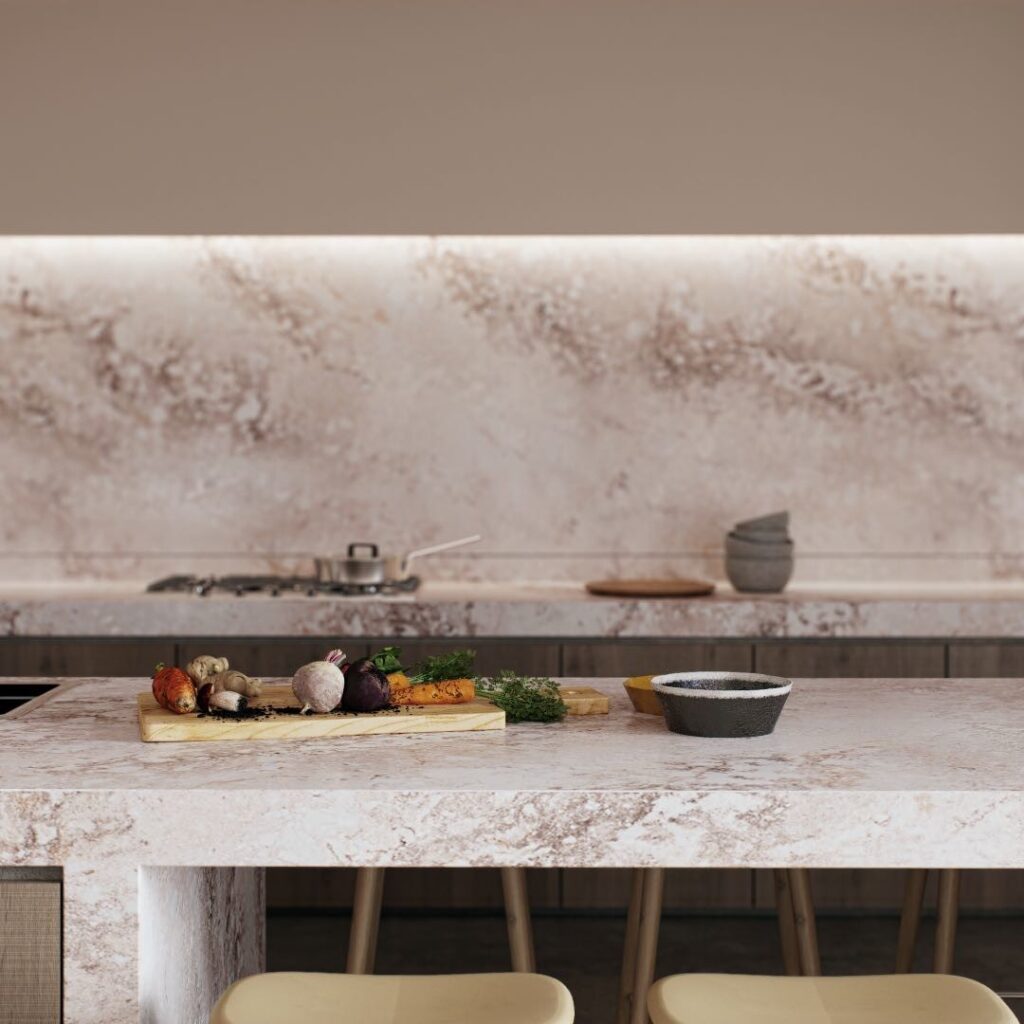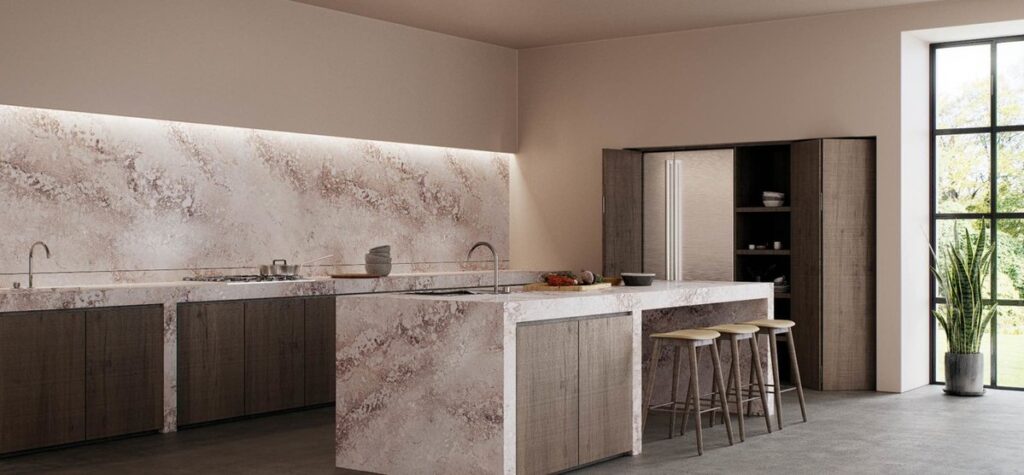Ceramic Tile Countertops Pros and Cons
5 min read
Ceramic tile countertops have been used in kitchens since well before the 19th century. Even with the availability of other modern countertop materials, ceramic tile countertop kitchens are still popular. Commonly known for their low cost, ceramic tile countertops also have their drawbacks. When shopping for countertop materials, learning about each countertop material’s pros and cons will ensure you make the right choice based on your needs, and prevent you from making costly mistakes. Let’s look at ceramic tile countertops’ pros and cons.

Ceramic tile kitchen countertops are available in different colours, shapes, materials and even sizes. With a wide variety of choices, you can lay out your ceramic tiles creatively to customize the look and create decorative designs on your countertops. Whether you’re looking for cool-toned, bright, or plain colours, you have your pick in the market. While there is a huge variety available, if a ceramic tile countertop cracks or is damaged, getting the correct replacement may be quite tricky.
Ceramic tile countertops are not durable. With these countertops, cracks and chips are common and cannot be repaired. The only way to fix a damaged countertop is to replace it with a new one. Replacing this variety of countertop is easy with the help of a few tools but having a countertop that regularly needs to be replaced is not ideal. And, as we mentioned previously, finding the exact match for your cracked ceramic tile can be difficult. After a few repairs, you may be forced to use different tiles that are the best match available. Quartz countertops are durable and easy to repair. If a quartz countertop cracks, you can repair the crack in just a few minutes.
The cost of ceramic tiles ranges between $1 to $15 per square foot. While this is less costly than other countertop materials, the cost of replacement once the ceramic tiles get damaged is higher in the long run. Also consider other resources such as time, money, and labour used in these constant replacements. With these factors in mind, a ceramic tile surface ends up being more expensive and time consuming than getting quality quartz countertops.

Durability is important to consider when it comes to countertop materials. The constant repairs and replacements that come with ceramic tile countertops are undesirable and a waste of resources. To avoid replacing your countertops so often, opt for a surface more durable than ceramic tile countertops. This countertop material is prone to cracks that cannot be repaired. If you notice cracks or chips on your ceramic tile countertops, the only solution is to replace the entire tile. Quartz countertops are revolutionary. Not only durable but easy to repair, quartz is unmatched. Cracks or chips on quartz countertops can be easily filled with resin. Accidents happen regardless of how careful you are around your countertops. The ease of repairing cracks or chips adds to the convenience and value.
If you often spill liquids on your ceramic tile countertops, maintaining the grout joints will be difficult. Spills are unavoidable in a kitchen and while you should wipe off spills on any countertops immediately, they are often forgotten. With ceramic tile countertops, you will need to seal the grout joints quite often. Failure to do this creates a perfect environment for bacteria and germs to grow. Note that based on the material of the grout joint, the sealant may not work. Simply wiping the counter down with a cloth will not get rid of the bacteria so you may find yourself spending a lot of valuable time cleaning your ceramic tile countertops. Quartz countertops are nonporous, hygienic, and easy to clean with mild soap and water.
Ceramic tile countertops are not a smooth kitchen surface. Whether you use large tiles or small ones, the countertop will still be uneven due to the grout space between each tile. If this is an issue, opt for other countertop materials that provide a smooth surface. Quartz countertop material is available in different slab sizes, requires no grout, and ensures a smooth surface every time.
The style– Ceramic tile countertops can look outdated. In a modern kitchen, installing ceramic tile countertops may even lower the value of your home. A quartz countertop is likely to be a selling point for potential buyers of your home.
The durability- Considering costs accrued over the lifespan of a countertop, quartz countertops are the right choice. As long as you maintain your quartz surface, it could serve you for 15 to 25 years.
Ease of cleaning and maintenance- Aesthetics matter, but so does functionality. Quartz countertops are easy to maintain. You will never have to worry about fitting an hour of cleaning into your busy schedule with quartz countertops. The resistance to scratches, cracks, stains, and heat also means there will be no need for regular maintenance.
{{ subtitle }}
{{ i.desc }}
{{ subtitle }}
{{ subtitle }}